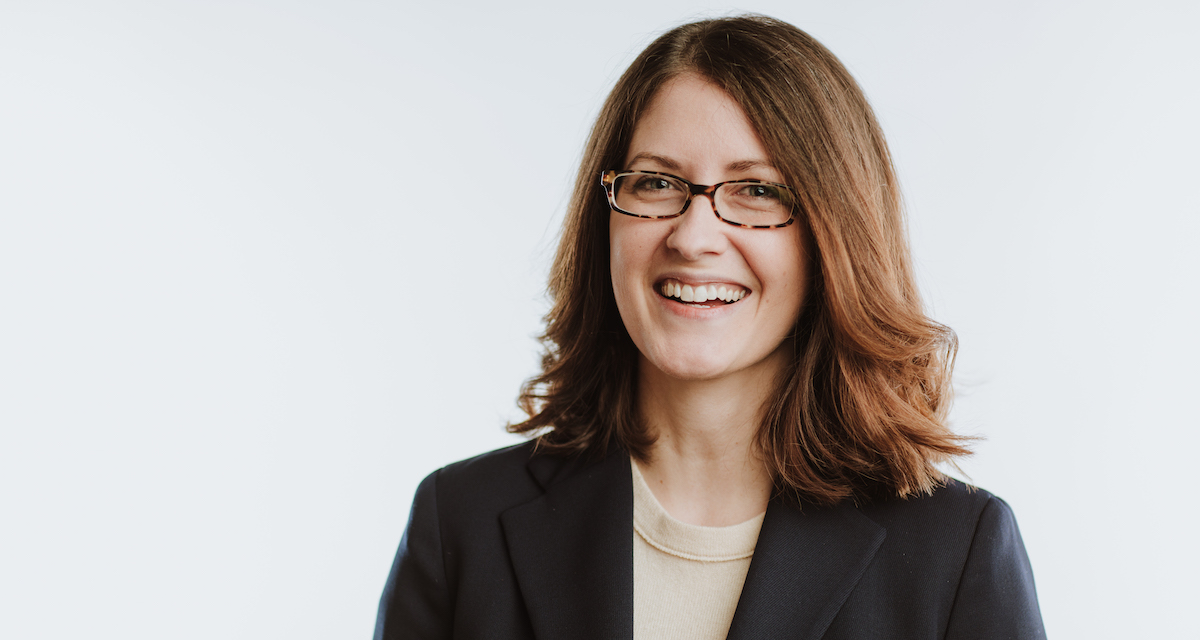Economist Embraces Life’s Imperfections and Subtleties
In 2019, Associate Professor of Economics and Business Dr. Kristen Cooper ’06 spent her summer on the Spanish island of Tenerife as a U.S. Fulbright scholar. The island is known for Teide Peak or Pico del Teide—a 12,198-foot volcanic mountain that also happens to be the highest point in all of Spain.
Marveling at this peak one day, Cooper considered how an economist’s mindset of “thinking on the margin”—of trying to reach the highest point through forward or upward movement—doesn’t work when applied to a person’s life. That’s because our lives aren’t a series of upward steps, Cooper explained in last Thursday’s John Mason Lecture, co-hosted annually by the Economics and Business Departments and the Center for Faith and Inquiry. “A more realistic view of the landscape of life starts with the observation that life is not so smooth; it’s not globally concave,” said Cooper. “Moving to the highest point in the landscape might actually mean taking a step down.”
She called this alternative mindset “thinking on the average”—an economist’s version of “big picture thinking” or a “bird’s eye view.” Unlike marginal thinking, it looks at the cumulative effects of our decisions instead of zeroing in on the trajectory of the next step.
Here are some more ways Cooper drew from the Teide Peak analogy to illustrate the benefits of “thinking on the average” when it comes to our personal lives.
If you want to go far, go together
When you reach the summit of a mountain, it’s nice to be able to share your excitement and relief with other hikers, emphasized Cooper. “Being on the mountain top alone is not as good as being there with someone else,” she admitted. “There’s also the fact that people need each other [while] climbing a mountain. It can be done more easily with teamwork.”
Be mindful of your own limitations
In reality much of what’s happening in our lives isn’t obvious or visible to us, Cooper pointed out. “Thinking on the average requires us to recognize the limits of our own perception,” she said. “Small changes aren’t always noticeable [but] small steps can add up to meaningful change. Sometimes the limits of [our] perception means we can take small steps without realizing we’re adding to something that’s actually undesirable. This can be for good or for bad.”
Faith is essential to starting the journey
There’s no way to fully prepare for what’s ahead of you, which makes faith fairly essential, said Cooper. She explained, “Charting a course to deal with the challenges of life and hopefully address the crises of our day—crises like public health challenges, climate change and political discord—begins with an element of faith. Faith, or trust, is a first step for behavioral change. We need faith to step beyond our present circumstances into something we can’t fully understand.”
To learn more about upcoming events hosted by the Center for Faith and Inquiry, visit www.gordon.edu/cfi
By Anna Kinkade ’21, psychology and communication arts
 The Bell
The Bell